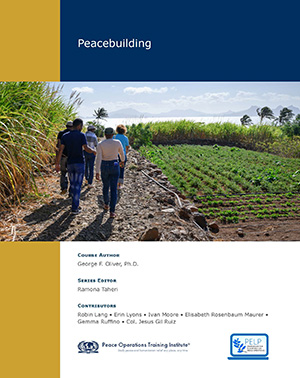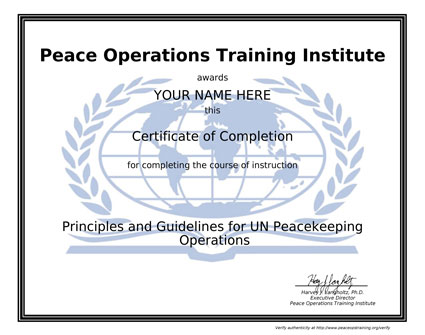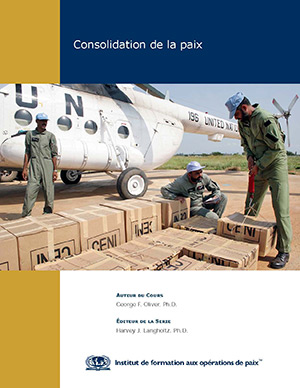Peacebuilding has emerged over the last three decades as one of the most enduring concepts of the United Nations System. The concept of peacebuilding initially aimed to help nations recover from violent conflict, but in recent years it has come to include conflict prevention in weak and fragile States. After the end of the Cold War, the UN and other regionally sponsored peacekeeping missions created programmes to help troubled nations become effective members of the international community. UN involvement in peacebuilding has expanded since the groundbreaking 1992 publication of An Agenda for Peace and the creation of the Peacebuilding Commission in 2005. An Agenda for Peace addressed the concept of post-conflict peacebuilding, and since that time, the concept of peacebuilding has undergone extensive study by practitioners, scholars, and policymakers. Other international organizations have also developed programmes to enhance peacebuilding in failed and fragile States. This course, which is newly updated to include recent developments, introduces students to the concept of peacebuilding by examining the major actors (namely international organizations) working in the field of peacebuilding, key documents, especially An Agenda for Peace and Supplement to an Agenda for Peace, and the UN Peacebuilding Architecture. The first two lessons provide an overview of the development of the field of peacebuilding, while Lesson 3 focuses on UN ideas on peacebuilding. Lessons 4 and 5 explore global developments in peacebuilding in recent years and planning for peacebuilding. Included with the course are three detailed, supplemental case studies examining UN peacebuilding in Sierra Leone. Five lessons.
About the Author: Dr. George F. Oliver served 31 years in the United States Army before turning to a career in academia. He has taught, written, and lectured around the world on the role of the military in peace operations and peacebuilding. While on active duty in the US Army, Dr. Oliver served in a variety of light infantry, Ranger, Special Forces, and airborne units across the globe. His assignments included Deputy Coordinator for Humanitarian Assistance for the Coalition Provisional Authority in Iraq, Director of the US Army Peacekeeping and Stability Operations Institute in Carlisle, Pennsylvania, and the Military Advisor to the US Ambassador to the United Nations. Dr. Oliver received his Ph.D. from the George Mason University School of Conflict Analysis and Resolution and joined the faculty of the US Naval War College in Newport, Rhode Island, in November 2005 as a Professor of Joint Military Operations.
Nombre de pages: 149 [Anglais]
Editeur: Institut de formation aux opérations de paix (POTI) [14-01-2025]


